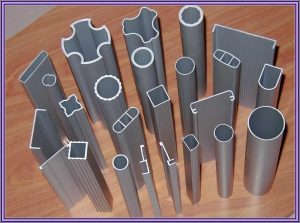Beautiful Plants For Your Interior

The aluminum alloy codes are based on the AA standard of the American Aluminum Company and are represented by four digits to denote various different alloys.
- The first digit (thousand place)
1xxx: Pure Aluminum
2xxx: Al-Gu alloy
3xxx: Al-Mn alloy
4xxx: Al-Si alloy
5xxx: Al-Mg Alloy
6xxx: Al-Mg-Si alloy
7xxx: Al-Zn-Mg alloy
8xxx: Alloys other than those mentioned above
- The second digit (hundreds place)
Using 0-9 to represent, 0 represents the basic alloy, while 1-9 represent various modified alloys or recycled alloys. When it is pure aluminum, 0 indicates there are no specific restrictions on impurities, while 1-9 indicates that one or more impurities have specific regulations.
- The third and fourth digits (ten, unit)
Pure aluminum is indicated by the decimal point’s second digit of its purity. For alloys, they are referred to using the specifications of Japanese and American aluminum.
Type
F: Produce the original material
O: Have experience in annealing and recrystallization of materials (only applicable to ductile materials)
H: Material with work-hardening property (followed by 2 digits).
- The first digit
H1x: Material for only hardening processing
H2x: Materials that have undergone work hardening and then undergone partial annealing
H3x: Materials subjected to stabilization treatment after undergoing work hardening process
- The second digit (indicating the ultimate degree of work hardening)
Hx9: Superhard
Hx8: Hardened
Hx6:3/4 Hard (This material’s tensile strength lies in the middle between hard and 1/2 hard)
Hx4:1/2 Hard (This material’s tensile strength lies in the middle between hard and soft types)
Hx2:1/4 Hard (Intermediate between 1/2 Hard and Soft)
- T: Stable materials that undergo heat treatment except for F, O, and H
T2: Annealing Material (Only applicable to castings)
T3: After quenching treatment, the material that has undergone work hardening
T4: Materials after quenching treatment and complete aging at room temperature
T5: Materials that undergo only tempering treatment instead of quenching treatment
T6: Materials that undergo annealing treatment after quenching process



